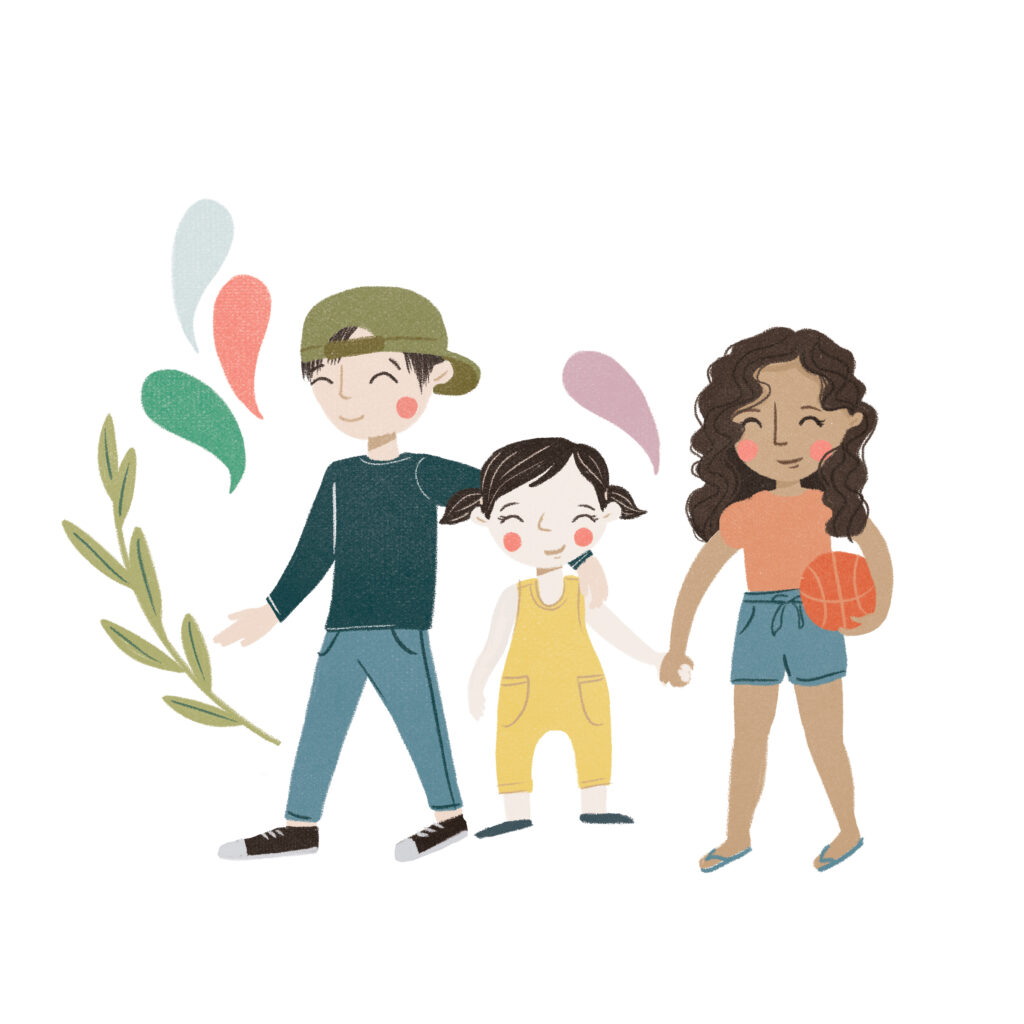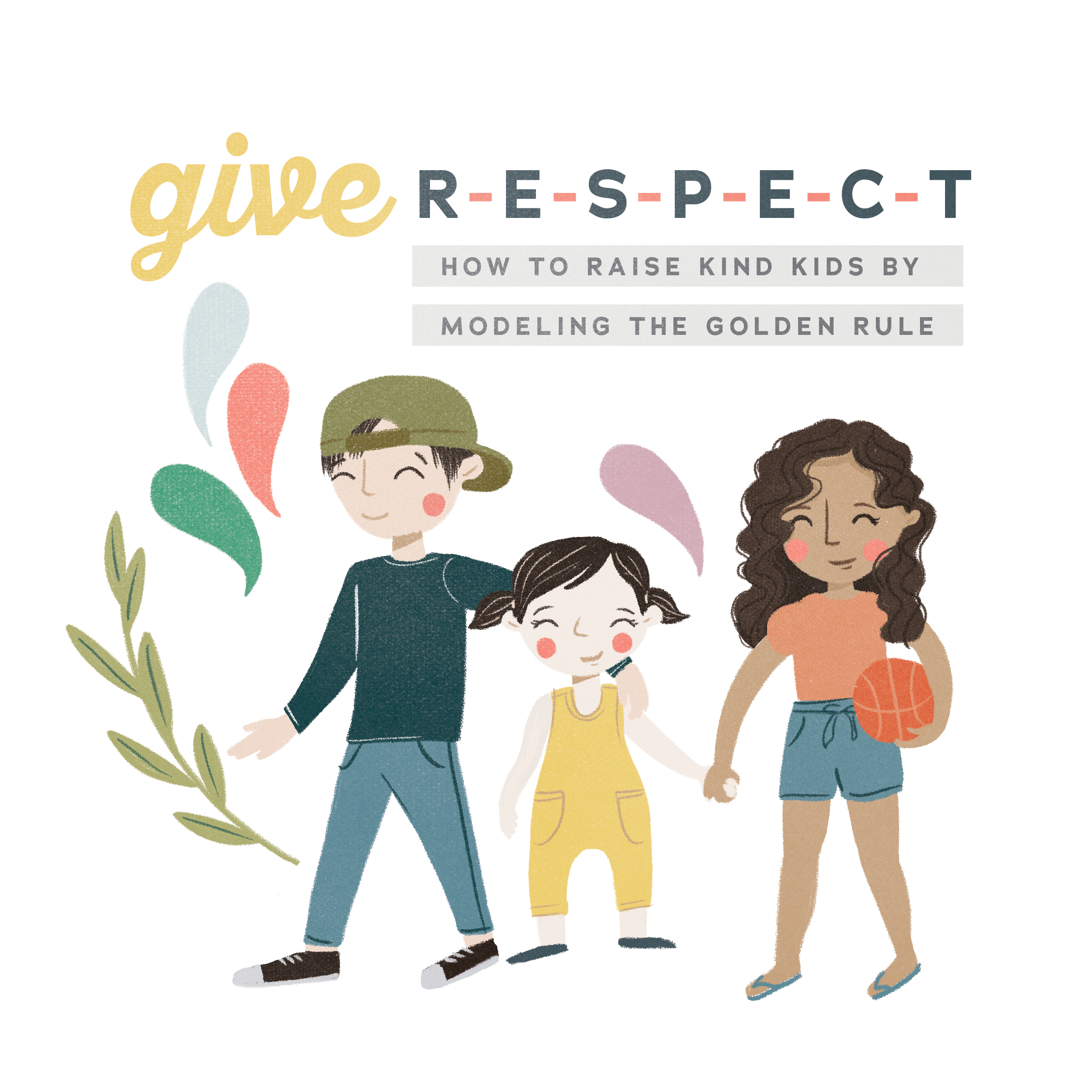As I researched how kids learn to be kind friends, there was one argument that kept popping up from child therapists that could not be ignored: kids will learn to be kind to their friends from their positive relationship with adults.
Your friendships with the children in your life will greatly impact their ability to be a friend to their peers. If we want kindness to sweep our communities, we start by modeling kindness and passing it down to the next generation. Whether you are a parent, teacher, aunt, grandma, nanny, nurse, etc., you bear the responsibility to be a good friend to your peers and to kids.
How can you practice being a good friend to kids? You model the Golden Rule.
In the gospel of Matthew, Jesus told his disciples: “So in everything, do to others what you would have them do to you…” (7:12). Seems simple right? But being kind to our kids on their best day can be tough. Why? Because deep down we all want what we want, when we want it. And when two imperfect persons are trying to serve themselves it is a lose-lose situation. I get frustrated. I act selfishly. I no longer treat my kids with fairness and kindness because I assume that—because I’m the adult and they are the kids—I don’t have to apologize for my bad attitude and self-centered actions.
One of my favorite authors, Paul David Tripp says, “we are more like our kids than unlike our kids.” We act just as bratty, entitled and needy as our kids do. So how do we treat our kids the way we would want to be treated, and in return, watch our kids treat their peers the same?
Here are three things that have had the greatest impact on my friendship with my son…
Apologize and forgive
Even though I am an adult, it is still important for me to apologize for my actions. If I have been short with Hunter or have been impatient with him, I quickly do my best to apologize. I lean down, ask him to come close and I tell him I’m sorry. I recognize what I did wrong and tell him how I will work to improve next time. I might say something while buckling Hunter into his car seat: “Hunter, I am sorry I got mad at you when you were struggling to put your shoes on. I was only thinking about being on time to our next appointment instead of pausing to help you. Next time, I will be more patient, and I think getting to the car will go more smoothly.”
We apologize as a manipulation tool to get our kids to straighten up; we forgive because Jesus forgives us. We know what it’s like to act out towards God, and he forgives us over and over again.
“Be kind and compassionate to one another, forgiving each other, just as in Christ God forgave you.” Ephesians 4:32

Serve often
I know, this seems laughable because as parents or caretakers it feels like all we do is serve at times. But it’s still important to model serving your kids with joy. Show your kids what it looks like to have joy in God’s work—and yes, raising kids is God’s work. 1 Corinthians 15:58 reminds us that when we are working for God, our “labor is not in vain.” They will notice, they will catch your servant-heart and actively look to serve you.
Even my 18-month-old likes to grab my water bottle and hand it to me because she wants to “help me” get a drink. It’s really sweet to see our kids not only be told to clean up, share their snacks or give their sibling the best seat at the table. But, to see them do it out of their own volition brings me such joy and it reminds me that God is working and moving in their minds and hearts.
Sprinkle in a “you’re welcome.” Pray before another day of serving three meals a day…and scraping plates afterward. Instead of a huge sigh, try singing while getting the kids dressed, getting them out the door or doing bath. Remind them it is a privilege from God to show you love them by serving them.
Respect
How I best understand respect is by looking at Philippians 2: 3-4, “Do nothing out of selfish ambition or vain conceit. Rather, in humility value others above yourselves, 4 not looking to your own interests but each of you to the interests of the others.”
We can respect our kids by valuing them: their personality, their wishes, and their feelings. We take time to listen, take note of their thoughts and find healthy, safe ways to let them act on those things. Everyone has the right to think independently and like different things. No one wants a boss for a parent; they want someone who cares about their ideas and can compromise to make things fair for everyone.
When we show our kids respect, they will find it easier to respect those around them. I’ve noticed my four-year-old thinking about his sister above himself: he will consider what Liv would like for a snack and changes his plans so that they can both enjoy the snack. They know what it feels like to have someone humble themselves and give them the attention they needed, so they can do the same for someone else—listen to an adult while they are talking or allow their friend to pick the playground activity.
Your commitment to be a kind friend to the kids in your life will significantly impact our future communities! Treat kids the way you want to be treated.
Scripture to read with your kind kids:
Ephesians 4:32
Questions to talk through together:
Why is kindness important to you?
How is God kind to us?
How can we be kind to our friends? Be specific.
 Fun-Size Friendships Coloring Sheets
Fun-Size Friendships Coloring Sheets
Subscribers of my Newsletter can download four Fun-Size Friendships coloring pages for their kiddos. These coloring pages are a fun collaboration between myself and Mary Clarke Photo & Design. No judgement if you print two copies of each so that you can do one…

